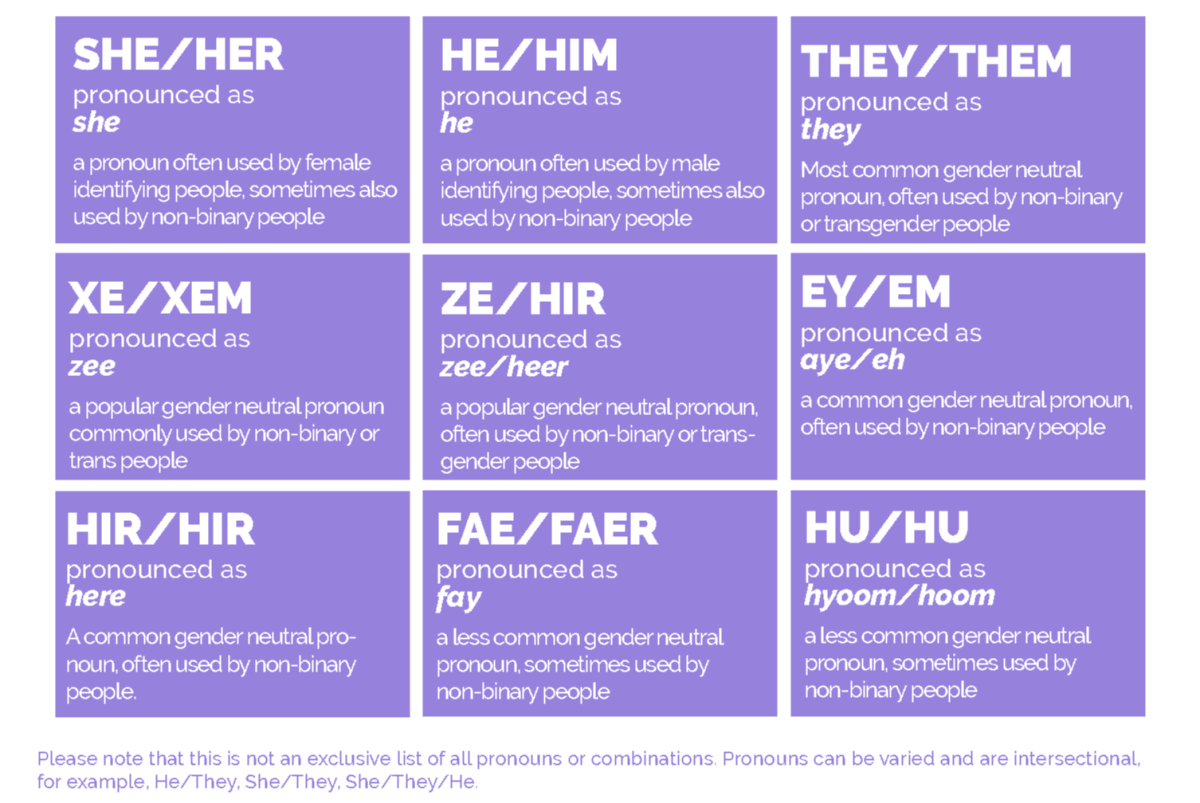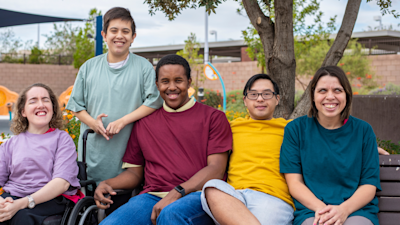Elliot, Child and Youth Support Worker, mentors LGBTQIA+ young people, giving them the support they wished they had when they were growing up.
Trans Day of Visibility (TDOV), held on 31 March, is an annual celebration of trans pride and awareness, recognising trans and gender-diverse experiences and achievements.
TDOV is about learning and celebrating with trans and gender-diverse people by sharing stories, starting conversations, and attending events.
To celebrate TDOV, Elliot, Child and Youth Mentor and Residential Support Worker, sat down with us to share their lived experience as a nonbinary person.

Image: Elliot, wearing a black t-shirt and glasses, smiles at the camera.
Elliot privately identified as nonbinary for six years, they came out at work in the last year.
“I have a partner who's also gender diverse and has had a really negative experience coming out at work, so I was a bit nervous about the whole process,” said Elliot.
“I came out during a supervision meeting with my supervisor. In the last part of our meeting, I said, ‘And by the way...’ My supervisor was fantastic with it.”
A couple of weeks later, Elliot’s supervisor said, “We have this new young person who we're looking for a mentor for, and they are also gender diverse. Would you be interested?”
Elliot knew they had a lot of common interests with the young person, so it was a good match.
“I jumped at the opportunity of being able to be a lived experience representation for this young person.”
When growing up, Elliot did not have a lot of support navigating their gender identity.
“I find it especially meaningful to be able to support someone knowing what it's like not to have this support. I knew that I was gender diverse for a very long time, but refused to accept it because I didn't want the consequences that came with that, of being so marginalised," shared Elliot.
"I knew my sexual orientation wasn't heterosexual. When there started to be a little bit more representation in the media, I came out as bisexual when I was 15 – but just to a couple of people. I kept it very close to the chest until I was probably 18, then I started telling more people.”
Even then, Elliot had further to go on their journey before accepting their gender diversity.
“I refused to acknowledge my gender diversity even though it kept coming up, every year, since I was a kid. And I was like, ‘No, no, I'm not going to let it happen’ until I was probably about 19. Then I started exploring that very slowly.
"I can't imagine how different that would have been if I had received this kind of representation (of a mentor). Just to even see that this existed in the world and know that it was OK, let alone having someone who was gender diverse mentoring me, supporting me and showing me that you can live a very happy life,” said Elliot.
Elliot channels the support they wished they had into how they mentor young people.
“I allow them space to explore their gender diversity and what that means for them. All young people are developing their sense of identity, including their gender and sexuality. Children whose genders lie outside of the cisgender experience are likely to experience considerably less representation of people like them," said Elliot.
"I show them what that life will look like and how to cope with a world where they might face discrimination."
"I like to come in and give them that representation, not only with my own existence but with other forms of education and opportunities to experience that world - like with LGBTQIA+ community events like Pride March or Mardis Gras.”

Image: A crowd at a trans rights march holding pride trans flags. SOPA Images/Getty Images
What advice does Elliot have for those caring for a gender-diverse child or young person?
“The two most important things gender diverse children need are; understanding and people who are open-minded and care about them. They also need people who have education around these matters," said Elliot.
"They need opportunities to experience representation through experiences like Pride and going to LGBTQIA+ events, as well as having educational resources. And if possible, they need real-life representation through gender diverse support systems, like mentors and counsellors.”
Elliot explained why the use of the right pronouns is important.
“When an adult puts in an active effort to use the child’s preferred pronouns, and their preferred name, the impact that that has on the young person is phenomenal. It creates a safe place for them to live their life openly as their identity, and to explore what their identity means to them," said Elliot.
"Mistakes do happen, and it is not the end of the world if you use the wrong pronoun. But it is so important to acknowledge those mistakes - to correct yourself and say, ‘oh, I'm sorry about that’ - because it shows that you care about that young person. The impact it has is that the child will feel cared about and safe.”

Image: Infographic: Nine purple boxes with white text explaining different pronoun options: She/Her, He/Him, They/Them, Xe/Xem, Ze/HIR, Ey/Em, Hir/Hir, Fae/Faer and Hu/Hu. Image from: Wear It Purple.
Young people need compassionate and supportive carers as they explore their identity.
“As a young person, they may say, ‘I am a trans man now, and these are the pronouns I use, and this is the name I use’. Then a year later, they say, ‘actually, I think I'm nonbinary, and I'd like to change my name, and I'd like to change my pronouns.’ And that can be confusing for the people around them because they might have just gotten used to this one thing, and now they have to change again.
"They need carers who know that that is a normal transition to experience - that gender diversity is a fluid experience, especially when you're a young person, and you're still working out your identity - and just be able to go ‘OK, we're going to adjust as best as we can,’,” said Elliot.
“Developing strong relationships with adults is so significant for these young people. Having their identities be seen and accepted is massive.”
Elliot shared that they are very happy they decided to come out at work.
“I already feel like I am reaping the rewards of coming out. And overcoming that barrier for myself, I’m now also able to mentor a young person in this area too.”
We encourage you to learn more about TDOV by visiting:
You can also read about our LGBTQIA+ journey here.


